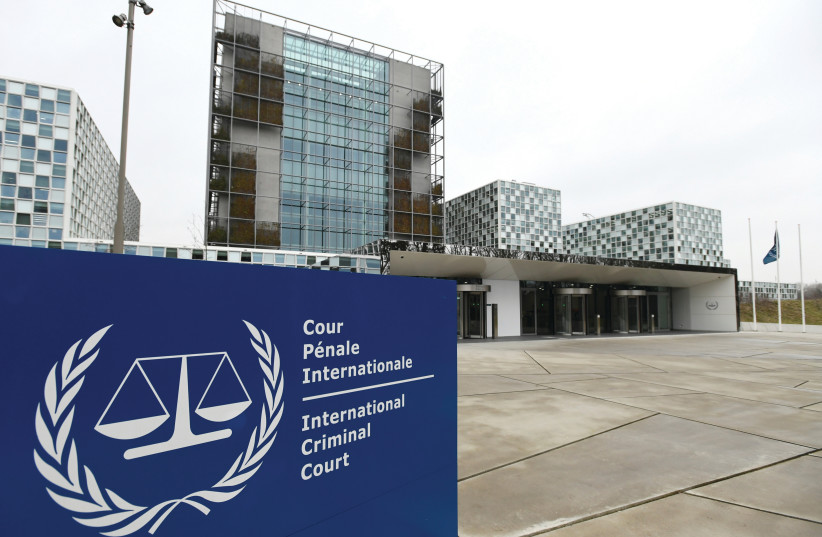Earlier this week, reports emerged that the Palestinian Authority is using Nicaragua v. US, a 1986 US Supreme Court case, to push a vote at the UN to request that the International Court of Justice (ICJ) declare Israel’s “occupation” of east Jerusalem and the West Bank to be illegal under international law.
The argument is that since Israel has possessed the eastern part of Jerusalem and the West Bank for 55 years, its ongoing and potentially open-ended hold on these disputed areas rises to the level of “de facto annexation.”
To date, the Jewish state has been careful not to formally annex the West Bank (it did annex Jerusalem in 1981) so as to avoid a variety of consequences with the international community.
These consequences could range from negatively impacting Israel’s broader relations with the US and Europe, to feeding the fire of campaigns to boycott Israel economically and to concerns about criminal cases from the International Criminal Court.
Will the ICJ declare Israel’s ongoing hold on east Jerusalem and the West Bank illegal and what would be the consequences?
First, Israel already lost a major fight before the ICJ, which declared the West Bank barrier Israel built as a security measure to be illegal.

Reviewing the judges’ basis for that ruling and a recent ruling by the ICC that allowed the ICC prosecution to proceed forward with probing Israelis for war crimes, it would seem there would be a strong chance that the judicial body would rule against Israel again.
For one, the ICJ bought into the Palestinians’ argument that the wall would prejudge the future frontier between Israel and Palestine, creating a “fait accompli” on the ground that could become permanent and, hence, tantamount to a de facto annexation.
The latest argument to the ICJ this week simply extends that de facto annexation argument further.
Next, the ICJ noted that the route chosen for the wall gave expression “to the illegal measures” taken by Israel with regard to Jerusalem and the settlements and entailed further alterations to the demographic composition of the disputed areas.
Finding that Israel’s actions severely impeded the exercise by the Palestinian people of their right to self-determination, the ICJ held the barrier to be illegal.
In addition, the ICJ said any Israeli security arguments either did not apply to legalize the barrier or were insufficient to do so, compared with the harm to the Palestinians.
Eighteen years later and with the settlements continuing to grow and Israel’s international status more controversial than ever, it is hard to see the ICJ changing its mind on these core issues.
Any new ICJ decision will also have support from the ICC. Former ICC prosecutor Fatou Bensouda, in seeking to prosecute Israelis, said “Palestine” should not be penalized for lacking aspects of statehood, such as set borders, because Israel was illegally preventing it from establishing borders.
Though Germany and some other states said a state of Palestine can only come into existence and can only have borders in negotiations with Israel pursuant to UN Security Council resolutions, the ICC ultimately went with Bensouda.
At the root of both the prior ICJ and ICC rulings is the idea that the Palestinians’ right to self-determination overcomes basically every other legal principle, from standard notions of sovereignty, to UN Security Council resolutions (especially Resolution 242, which says new borders and Israel’s withdrawal can only be determine by negotiations between the parties) and to security considerations.
At best, Israel could hope that the ICJ was tougher against it in 2004 because the wall was a new physical change on the ground, whereas there is less of a drastic sudden change going on now, as opposed to slow incremental settlement expansion.
In that sense, the ICJ will probably see rulings against Israel as an opportunity to try to pressure Jerusalem into sooner territorial compromise with the Palestinians.
Moreover, since their rulings are only advisory, they need not worry about any immediate consequences on the ground the way that standard national courts do.
Ongoing attacks on the High Court of Justice within Israel could either make no difference or make the ICJ even more likely to go against Israel out of a sense that Israel’s legal establishment is losing its relevance.
The US has disagreed with past similar international rulings against Israel, such as the recent ICC ruling.
But every time a major international body such as the ICJ or the ICC rules against Jerusalem, it eats away at the Jewish state’s legitimacy globally and raises support for prosecuting Israelis or boycotting Israel.
To date, Israel has succeeded at fending off the nightmare scenarios that such rulings could bring about. But one never knows when the legitimacy wall protecting Israel will crack in a larger and more dangerous way.
